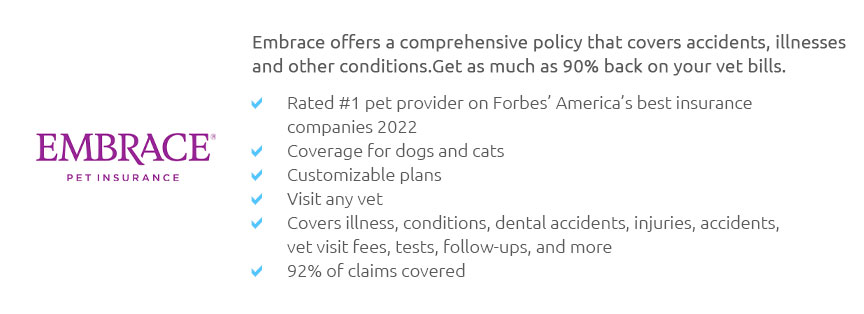 |
 |
 |
 |
 |
 |
|
 |
|
 |
|
 |
|
 |
|
 |
 |
 |
 |
 |
 |
 |
 |
Dog Insurance That Covers Vaccinations: A Complete Beginner's GuideIn recent years, the concept of pet insurance has gained significant traction among dog owners, and for good reason. Just as we protect our own health with insurance, ensuring that our canine companions are covered can offer peace of mind and financial security. Among the various options available, dog insurance that covers vaccinations stands out as a particularly prudent choice. Vaccinations are crucial for maintaining the health and well-being of dogs, acting as a safeguard against a plethora of diseases, some of which can be life-threatening. In this comprehensive guide, we delve into the intricacies of dog insurance that encompasses vaccination coverage, offering insights for beginners seeking to make informed decisions. Understanding Dog Insurance: At its core, dog insurance functions similarly to health insurance for humans. It provides financial assistance to cover veterinary expenses, ensuring that your furry friend receives necessary medical care without causing a strain on your wallet. Coverage options can vary widely, from accident-only policies to comprehensive plans that include routine care and vaccinations. The latter is particularly beneficial as it addresses preventive care-a critical aspect of responsible pet ownership. Why Vaccination Coverage Matters: Vaccinations are a cornerstone of preventive healthcare, protecting dogs from diseases such as rabies, distemper, parvovirus, and more. These vaccines not only shield your pet but also contribute to public health by preventing the spread of zoonotic diseases. While some pet owners may perceive vaccinations as an optional expense, they are, in fact, essential. Dog insurance that covers vaccinations alleviates the financial burden, encouraging adherence to vaccination schedules, and ultimately promoting a healthier pet population. Choosing the Right Plan: When selecting an insurance plan that includes vaccination coverage, several factors merit consideration. Begin by evaluating the specific needs of your dog, taking into account their age, breed, and lifestyle. For instance, puppies and senior dogs may require more frequent visits to the veterinarian. Additionally, compare policies from various providers, scrutinizing coverage limits, premiums, and any exclusions. It’s advisable to opt for a plan that not only covers vaccinations but also includes wellness exams and other preventive services, offering comprehensive care for your pet.
Opinions and Trends: The growing trend towards comprehensive pet insurance underscores a shift in how we perceive pet ownership. More pet owners recognize the value of investing in their pet’s health, viewing insurance as a proactive measure rather than an afterthought. In my opinion, integrating vaccination coverage into pet insurance plans is a testament to the evolving landscape of veterinary care, reflecting a deeper commitment to the well-being of our furry family members. Frequently Asked QuestionsWhat types of vaccinations are typically covered by dog insurance? Most insurance plans cover core vaccinations such as rabies, distemper, and parvovirus. Some may also include non-core vaccines depending on the dog’s needs and the policy specifics. Is dog insurance with vaccination coverage expensive? While premiums may be higher for plans that include vaccination coverage, the potential savings on veterinary costs and the benefit of maintaining your pet’s health can make it a cost-effective choice. Can I get insurance for an older dog that includes vaccination coverage? Yes, many insurance providers offer plans for older dogs, although the coverage options and premiums may vary. It’s important to shop around and find a policy that suits your pet’s specific needs. Do all insurance plans cover routine vaccinations? Not all plans cover routine vaccinations. It’s crucial to read the policy details carefully to ensure that vaccinations are included in the coverage. How can I make the most of my dog’s vaccination coverage? To maximize your coverage, adhere to your vet’s recommended vaccination schedule and maintain regular wellness visits, as these can help in early detection and prevention of potential health issues. https://www.reddit.com/r/puppy101/comments/xt8met/pet_insurance_that_cover_everything/
No insurance will cover vaccines or exams. One should ALWAYS expect to pay for those. It is part of the expected costs of owning a pet. If one ... https://spotpet.com/blog/why-pet-insurance/does-pet-insurance-cover-vaccines
Does pet insurance cover vaccines? Worry no more; in this article, we will tell you everything you need to know. Visit Spot Pet Insurance ... https://www.bankrate.com/insurance/pet-insurance/does-pet-insurance-cover-vaccines/
Most pet insurance plans will not cover your pet's shots, and you'll need additional wellness or preventive care plans to get reimbursed for this expense.
|